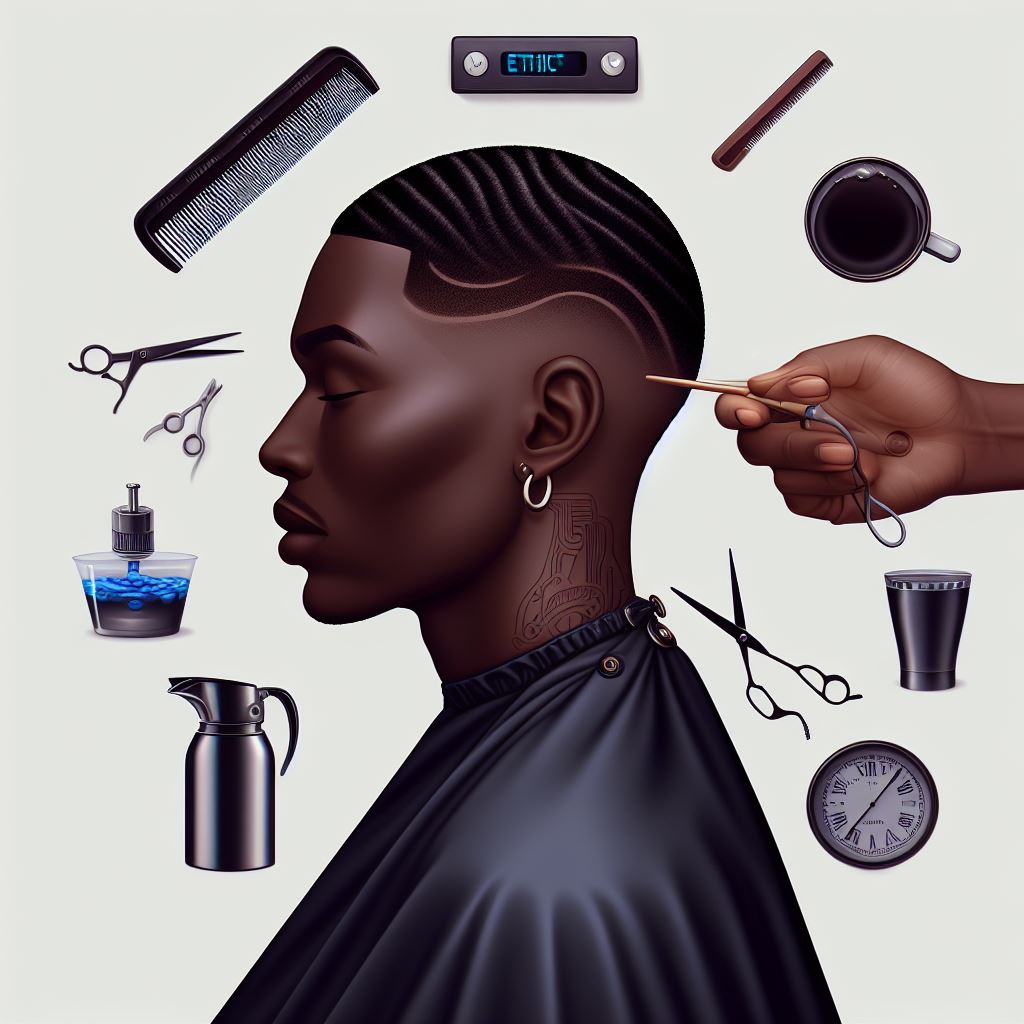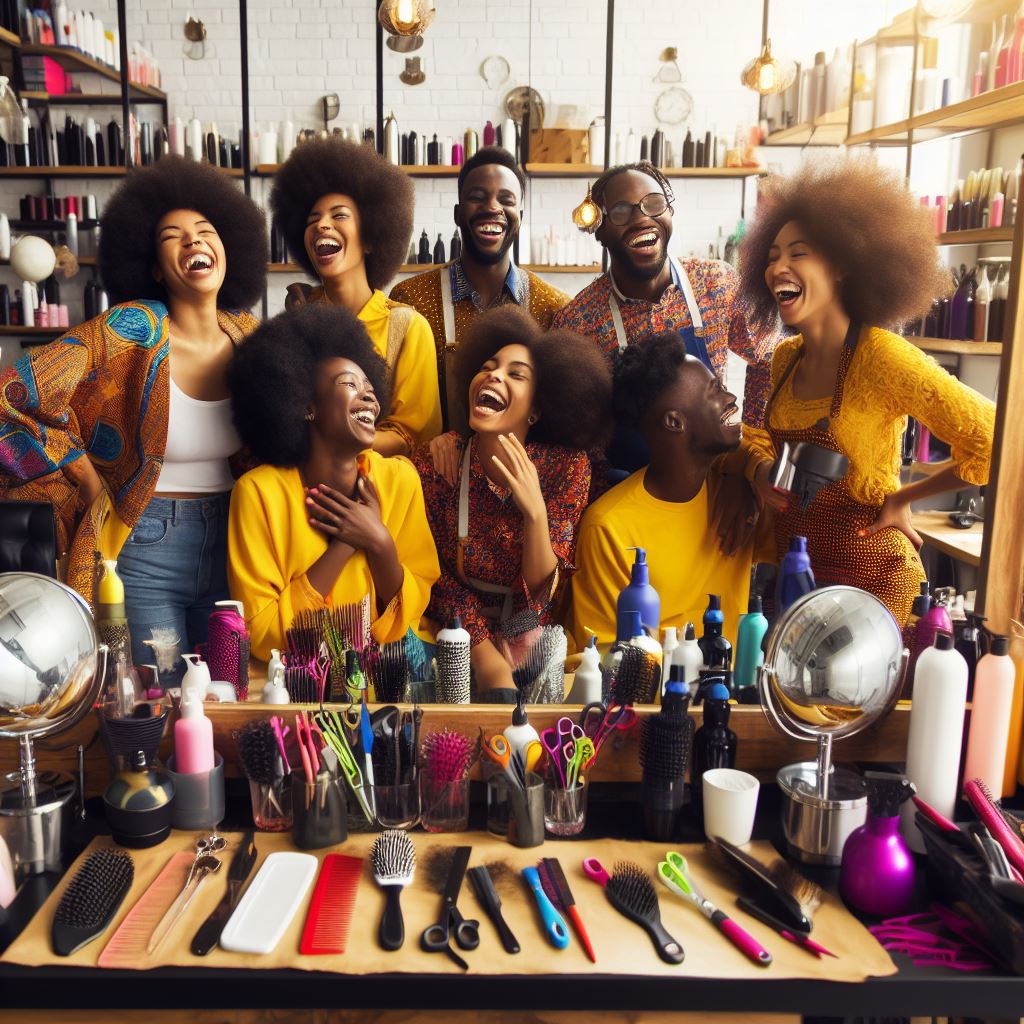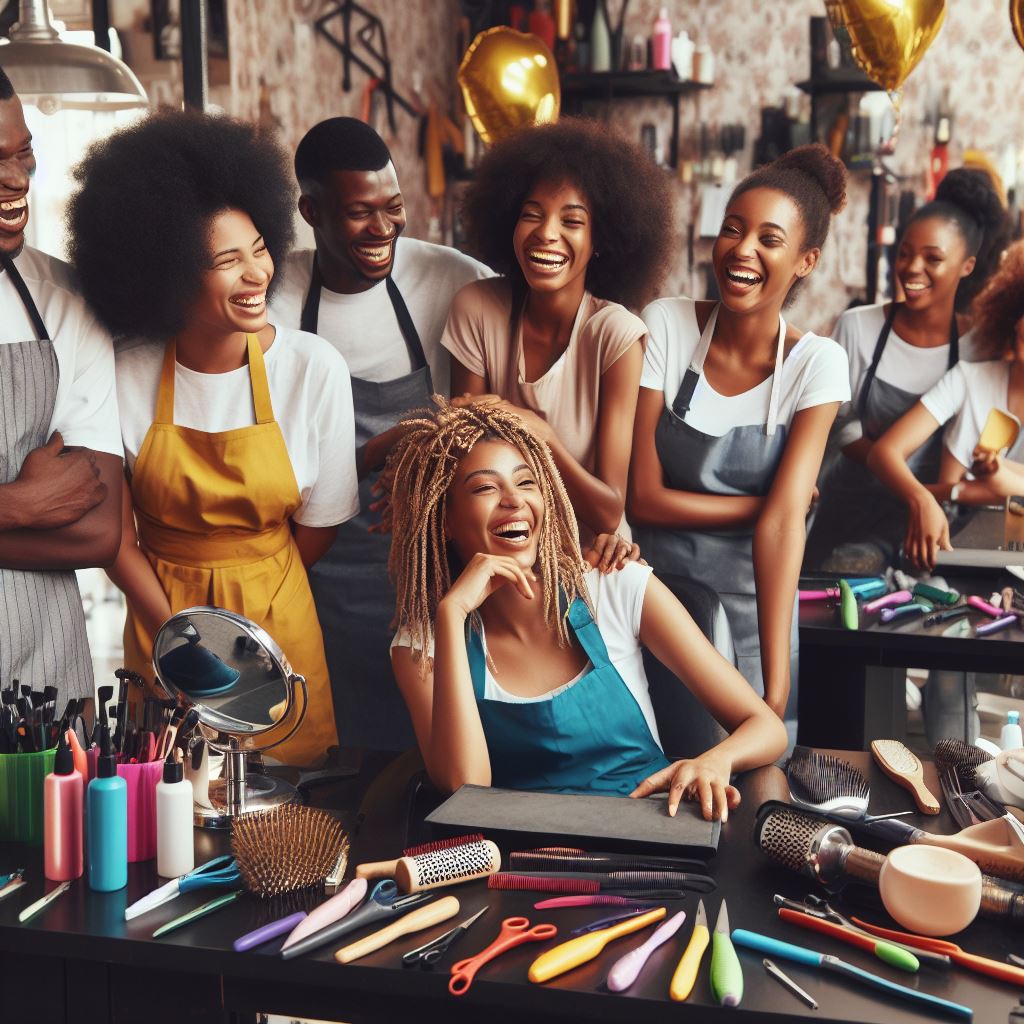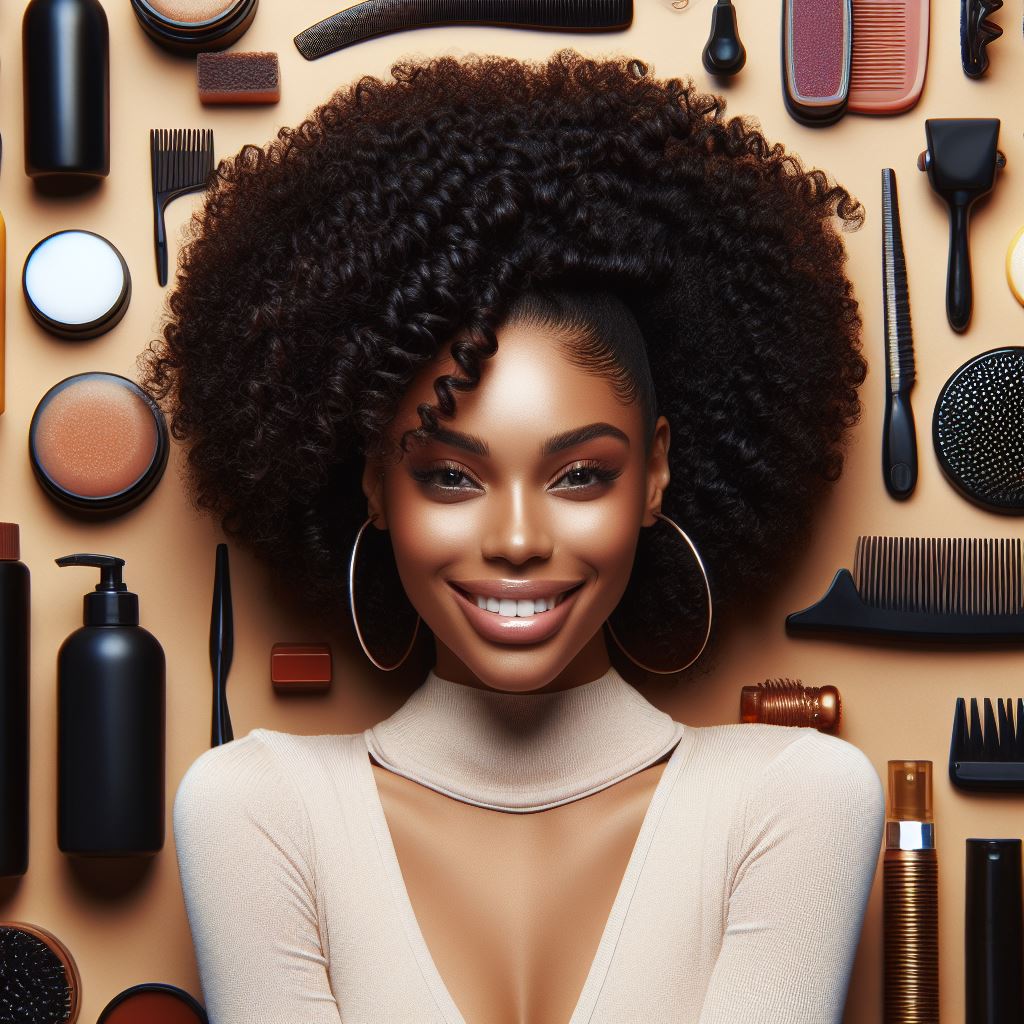Introduction
In the ever-evolving landscape of Nigerian Stylist Hair Trends, shaping the preferences of both clients and stylists alike.
Recognizing and adapting to these trends is pivotal for hairstylists, enabling them to meet the diverse needs of their clientele.
This blog post delves into the vibrant world of Nigerian hair trends, unraveling a tapestry of styles that define the contemporary hairstyling scene.
From traditional braids to modern twists, this comprehensive guide navigates through the rich tapestry of Nigeria’s hair culture.
By incorporating the use of lists, we streamline the exploration of trending styles, offering stylists a practical and organized resource.
Join us on this journey as we dissect, categorize, and celebrate the ever-evolving landscape of Nigerian Stylist Hair Trends.
Historical Background of Nigerian Hair Trends
In this section, we will delve into the historical background of Nigerian hair trends.
Understanding the traditional styles and haircare practices in Nigeria will give us insights into the significance of hair in Nigerian culture.
Traditional Styles and Haircare Practices in Nigeria
Hair has always held immense cultural value in Nigeria. It is not merely a form of self-expression but also a symbol of beauty, status, and identity.
Nigerian women have practiced intricate hairstyling techniques for generations, each style representing different tribes and cultural backgrounds.
Hairstyles in Nigeria varied based on region, marital status, age, and societal position.
For instance, the married Yoruba women often wore “Gele” – a large headwrap – as a mark of their marital status.
The Igbo women adorned their hair with coral beads, while the Hausa women were known for their intricately braided hairstyles.
Nigerian women also followed specific haircare practices to maintain the health and vitality of their hair.
Natural ingredients like palm oil, shea butter, and coconut oil were used to moisturize the hair and scalp.
Oiling and massaging the scalp were considered essential steps to stimulate hair growth.
Evolution of Nigerian Hair Trends
Nigerian hair trends, like any other fashion trends, have evolved over time, influenced by various factors.
One significant influence has been the introduction of Western hairstyles and media.
During the colonial era, Nigeria experienced significant cultural shifts as Western influences seeped into society.
The traditional hairstyles began to blend with more modern, European-inspired styles.
This fusion created a unique mix of traditional and contemporary hairstyles that became popular among Nigerian women.
In recent years, social media has played a pivotal role in shaping Nigerian hair trends.
Platforms like Instagram and YouTube have given rise to a new generation of influencers who showcase different hairstyles, techniques, and products.
These influencers, with a large following, have the power to popularize specific hair trends and styles.
Young Nigerians now have access to a vast range of hair inspiration from across the globe.
They can experiment with various hairstyles, including natural hair, weaves, braids, extensions, and wigs, thanks to the global reach of social media.
In short, Nigerian hair trends have a rich historical background rooted in cultural significance.
Traditional styles and haircare practices serve as the foundation for understanding the evolving landscape of Nigerian hairstyles.
From the influence of Western hairstyles to the impact of social media, Nigerian hair trends continue to adapt and flourish in the modern world.
Read: International Views: Fundraising in Nigeria Compared
Popular Nigerian Hair Trends
In the vibrant tapestry of Nigerian culture, hair has always held a significant place.
Over the years, Nigerian hairstyling trends have evolved, reflecting not only fashion but also cultural identity.
Here, we delve into some popular Nigerian hair trends and how they’ve evolved with the times.
Afro Hairstyles
The Afro, an iconic symbol of Nigerian culture, has long been a source of pride. It’s not just a hairstyle; it’s a statement.
The Afro represents natural beauty, unapologetic self-expression, and a connection to African heritage.
Today, we see Afro styles adapted with a modern twist, incorporating vibrant colors and creative shapes that resonate with the younger generation.
Braids and Extensions
Braids, in their myriad forms, have always been a part of Nigerian hairstyling.
From box braids to cornrows, these styles showcase the artistry of Nigerian hairstylists.
Extensions play a pivotal role in achieving volume and length, enabling women to switch effortlessly between styles, from bold and colorful to elegant and understated.
Natural Hairstyles and Protective Styles
Embracing natural hair textures has become a powerful movement in Nigeria.
Women are redefining beauty standards and celebrating their unique curls, coils, and kinks.
Protective styles like twist outs, bantu knots, and updos not only preserve the health of natural hair but also create stunning looks that are both fashionable and functional.
Nigerian hairstyling trends are a dynamic reflection of cultural heritage and contemporary fashion.
From embracing the Afro to celebrating natural textures, Nigerian stylists continue to push the boundaries of creativity while preserving the essence of tradition.
These trends are more than just hairstyles; they are a celebration of identity and a testament to the beauty of diversity.
Read: Building Trust: Transparency in Fundraising in Nigeria
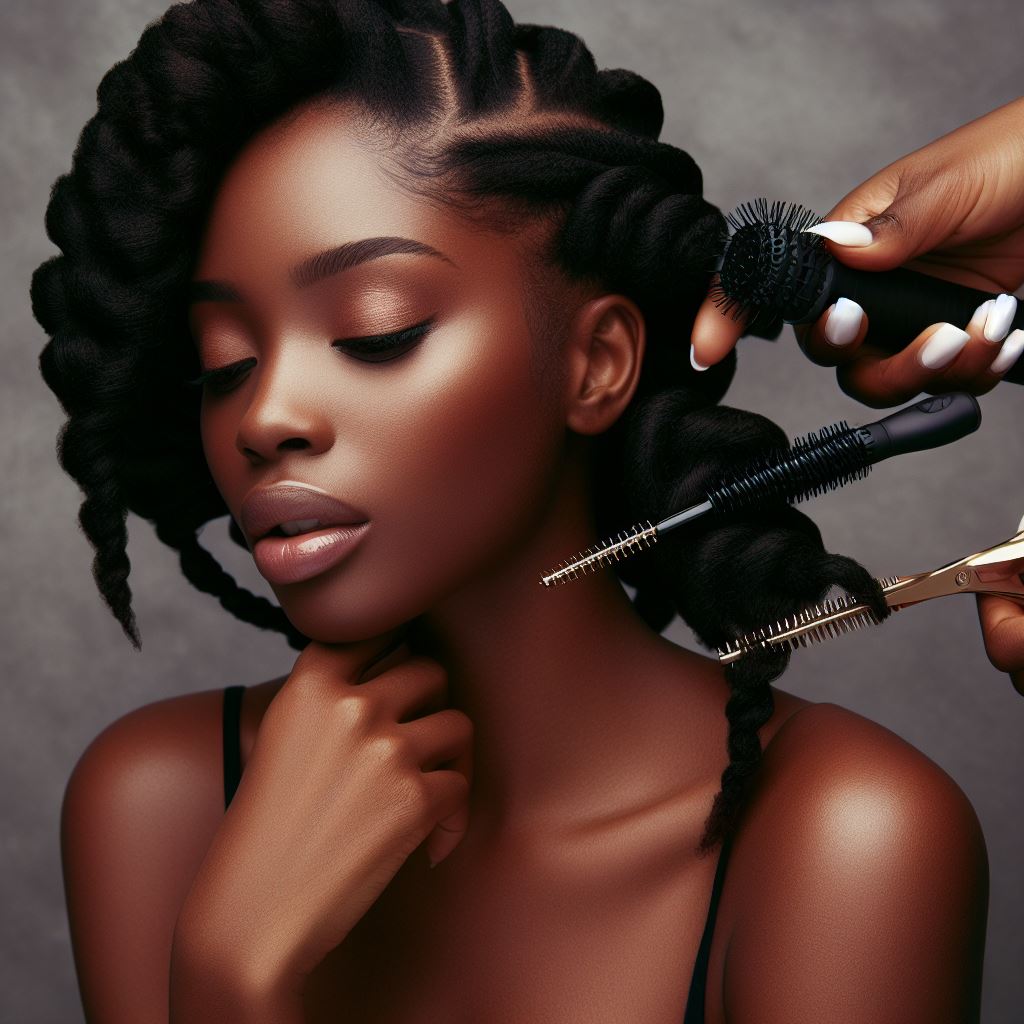
Factors Influencing Nigerian Hair Trends
Media and Fashion Industry
- Nigerian celebrities and influencers play a significant role in shaping hair trends.
- The collaboration between stylists and fashion designers affects the evolution of Nigerian hair trends.
Cultural Influences
- Traditional Nigerian fashion and aesthetics have a profound impact on hair trends.
- The influence of diverse Nigerian ethnic groups contributes to the diversity of hair trends.
The media and fashion industry have a significant influence on Nigerian hair trends.
Nigerian celebrities and influencers, who are admired by many, play a crucial role in setting trends.
Their choice of hairstyles and their personal style can lead to mass adoption by the Nigerian population.
These celebrities are seen as style icons and their influence on hair trends cannot be underestimated.
In addition to celebrities, the collaboration between stylists and fashion designers also has a profound impact on Nigerian hair trends.
Stylists work closely with fashion designers to create cohesive looks that include hairstyles complementing the outfits.
Through this collaboration, they create innovative and unique hairstyles that become popular trends among the Nigerian population.
Cultural influences also affect Nigerian hair trends. Traditional Nigerian fashion and aesthetics have always been strongly connected to hairstyles.
The traditional Nigerian fashion consists of vibrant colors, intricate patterns, and bold designs, which are mirrored in the hairstyles.
These traditional aesthetics shape the choices of hairstyles among Nigerians, keeping them connected to their cultural heritage.
Moreover, the influence of diverse Nigerian ethnic groups also contributes to the diversity of hair trends in the country.
Nigeria is a nation with over 250 ethnic groups, each with its unique fashion and hairstyle preferences.
This diversity leads to a wide range of hairstyles being adopted within the Nigerian population. Each ethnic group brings its distinct hairstyles, further enriching the Nigerian hair trends.
Overall, the factors influencing Nigerian hair trends are multidimensional. The media and fashion industry, consisting of celebrities and stylists collaborating with fashion designers, have a significant impact.
Cultural influences, including traditional Nigerian fashion and aesthetics, as well as the diversity of Nigerian ethnic groups, shape the ever-evolving Nigerian hair trends.
By understanding and embracing these factors, Nigerians can appreciate and celebrate the beauty and diversity of their own hair culture.
Read: Hair Styling in Nigeria: A Guide to the Profession
Haircare Tips for Nigerian Hair
Having healthy and well-maintained hair is important for everyone, regardless of their hair type.
However, when it comes to Nigerian hair, there are certain factors to consider that make it unique.
In this section, we will provide haircare tips specifically tailored to Nigerian hair, focusing on Afro, braided, and natural hair.
Provide general haircare advice that is applicable to Nigerian hair
1. Emphasize the importance of a proper haircare routine.
Having a routine in place ensures that your hair is consistently cared for and maintained. This includes regular washing, conditioning, and moisturizing.
2. Recommend products suitable for different hair types.
Understanding your specific hair type is crucial in choosing the right haircare products.
For Nigerian hair, products that provide moisture and promote hair growth are generally recommended.
Discuss specific haircare tips for Afro, braided, and natural hair
1. Address the challenges and common issues associated with these hair types.
Afro hair, for example, tends to be dry and prone to breakage due to its tightly coiled structure.
Braided hair can experience tension and scalp issues, while natural hair requires extra care to preserve its curl pattern.
2. Provide recommendations for maintenance, styling, and product choices.
For Afro hair, regular deep conditioning and protective styling help retain moisture and minimize breakage.
For braided hair, avoiding excessive tension and maintaining a healthy scalp with oils and tonics is important.
Natural hair benefits from gentle detangling, hydrating products, and avoiding harsh chemicals.
By following these specific haircare tips, individuals with Afro, braided, and natural hair can maintain healthy and thriving locks.
It’s essential to establish a routine that addresses the unique challenges of Nigerian hair and choose products that cater to its needs.
Remember, consistency and proper care are key to achieving beautiful Nigerian hair.
Read: Becoming a Hair Stylist in Nigeria: What to Know
Conclusion
To wrap up, we have discussed various Nigerian hair trends in this comprehensive guide.
It is crucial for stylists to stay updated and informed about these trends to provide the best service to their clients.
We encourage readers to embrace their unique hair and be open to experimenting with different styles.
Thank you for reading! Feel free to leave comments or ask any questions you may have.

